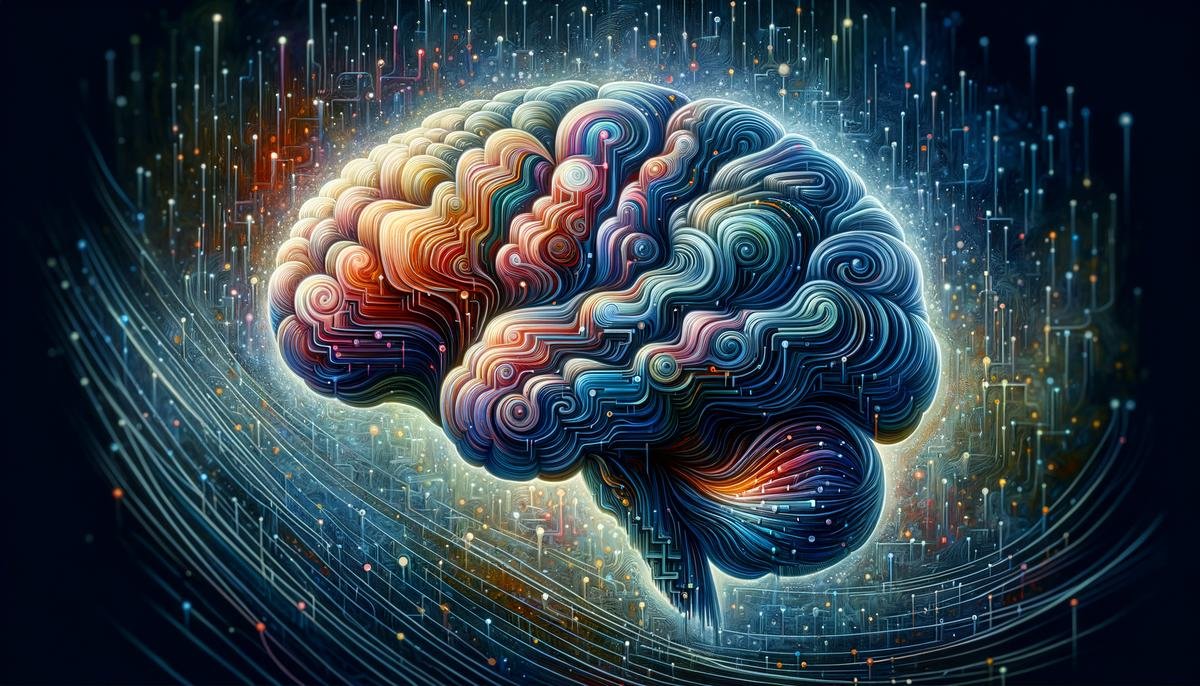Artificial Intelligence (AI) and its potential for consciousness are topics that provoke both curiosity and caution. As we progress through the stages of AI development, from simple rule-based systems to the speculative areas of Artificial Super Intelligence (ASI), the journey is marked by significant milestones and profound questions.
Key Concepts in AI and Consciousness
Anthropomorphism is the tendency to attribute human characteristics to non-human entities. In AI, it involves assuming machines exhibit human-like consciousness or emotions, often leading to misguided expectations.
Agency in AI refers to independent decision-making capabilities. In the context of AGI (Artificial General Intelligence), it means the AI system can make its own decisions and learn from experiences.
AGI is projected to excel and learn any intellectual task a human can. It’s not simply smarter algorithms but a leap in the AI’s capacity to discern, analyze, and adapt to various scenarios.
ASI (Artificial Super Intelligence) is a more speculative concept where AI would surpass human intelligence in all domains, tackling problems beyond human understanding.
Artificial consciousness embodies the AI’s self-awareness, where a machine understands itself as an entity with thoughts and feelings. This concept raises philosophical and ethical implications.
Sentience in AI denotes the system’s ability to experience emotions. These scenarios push the boundary of what we currently deem possible and raise ethical questions.
The Singularity is the theoretical moment where AI surpasses human intelligence, leading to rapid, uncontrollable advancements. Predicting its effects is highly speculative.
These concepts provide a foundation for exploring AGI, grounding our understanding in the reality and limitations of current AI systems.

Stages of AI Development
The journey of AI development begins with rule-based systems and potentially culminates in artificial super intelligence (ASI). Here are the key stages:
- Rule-Based Systems: Operate on predefined rules and logic, excelling in specific, structured tasks but exhibiting no learning capability or adaptability outside their programmed parameters.
- Context-Awareness and Retention: AI begins to remember previous interactions and use information contextually, improving user interaction.
- Domain-Specific Aptitude: AI systems become highly proficient in specific areas, such as diagnosing diseases or playing complex games.
- Reasoning Systems: Can interact with their environment and other entities, reasoning through unfamiliar situations more fluidly.
- AGI Self-Aware Systems: Would theoretically exhibit human-like intelligence and self-awareness, demonstrating adaptability and cognitive flexibility comparable to humans.
- Artificial Super Intelligence (ASI): A hypothetical stage where AI surpasses human intelligence in all domains, potentially solving problems beyond human ability.
- The Singularity: Represents the rapid, uncontrollable advancements resulting from ASI, potentially reshaping human civilization.
Each stage of AI development raises fundamental questions about intelligence, consciousness, and the essence of humanity.
Steps to Achieving AGI
Achieving AGI requires advances in multiple areas of technology and methodology:
- Updating Hardware: Equipping AI systems with powerful computational power and large memories to support complex functionalities.
- Natural Human Communication: Developing AI’s ability to understand and generate human language, capturing subtleties and contextual cues.
- Internet Connectivity for Broader Learning: Allowing AI to access and learn from vast pools of information in real-time.
- Educating AI about Human Behavior: Training AI to interpret human actions, motivations, and social cues.
- Developing Self-Learning Systems: Creating AI that can learn autonomously and adapt to new scenarios through experience.
- Enhancing Robotics: Developing advanced robotics with superior physical and sensory capabilities for AI to interact with the physical world.
- Quantum-AI Computing: Integrating quantum computing to enable exponentially faster processing speeds and enhanced problem-solving capabilities.
Each step contributes to building a system that understands, learns, and adapts in ways that parallel human intelligence. The path to AGI involves technical challenges and ethical considerations, but the potential rewards include a deeper understanding of intelligence and the creation of a new form of adaptive machine mind.
“The development of full artificial intelligence could spell the end of the human race.” – Stephen Hawking1

Beyond Agency to Consciousness and Sentience
Access consciousness refers to cognitive awareness that allows information to be used and reported upon. It’s employed when solving problems or recalling memories. Phenomenal consciousness explores subjective experience—what it feels like to experience something, including sensations, emotions, and thoughts (qualia).
Emergence plays a role in advancing AI toward these types of consciousness. In AI, sophisticated behaviors and insights may develop from layers of simpler algorithms working together, similar to how neurons generate complex thought processes.
The fusion of neuro-symbolic and bio-inspired computing offers promising avenues:
- Neuro-symbolic systems combine neural networks’ pattern-recognition with symbolic AI’s rule-based logic.
- Bio-inspired computing models processes on biological systems, like neuromorphic computing which mimics neuron and synapse collaboration.
Emotional awareness in AI means recognizing and appropriately responding to emotions in human interactions. Theory of Mind (ToM) is the capacity to attribute mental states to oneself and others, critical for nuanced social interaction. In AI, achieving ToM means developing systems that can infer and predict human behaviors based on this understanding.
Incorporating these capabilities isn’t just about making AI smarter, but more effective in human-centric applications. As we progress, we must remain mindful of the ethical dimensions involved in creating machines that might possess these human traits.

Ethical and Existential Considerations
The Control Problem encompasses the challenge of ensuring AGI systems obey intended guidelines and align with human values. Establishing effective oversight mechanisms is crucial, akin to creating an adaptable user manual with evolving safeguards.
AGI has the potential to revolutionize industries, but also carries risks of displacement and societal upheaval.
Longtermism urges consideration of how today’s decisions will affect future generations, prioritizing sustainable and ethical development of AGI.
Adaptability in AI development is crucial. AGI systems must be designed to adapt to technological advances, evolving ethical standards, and societal needs.
Creating a machine with advanced cognitive and emotional capabilities raises questions about rights and personhood. The potential for harmful bias embedded within AGI systems is a critical ethical concern, requiring vigilant development practices to ensure fairness and equity.
The goal is to balance leveraging AGI’s potential benefits while guarding against risks. This requires embedding ethical considerations into AGI development, creating systems that enhance human capability and advance collective well-being responsibly.

Future Scenarios and Predictions
Predicting AGI development requires balancing optimism with caution. Ray Kurzweil forecasts human-level AI intelligence by 2029, potentially assisting in problem-solving across various sectors.1 However, challenges remain in ensuring alignment with human values and ethics.
Future AGI capabilities could transform:
- Education with personalized learning experiences
- Healthcare with predictive and preventive treatments
However, job displacement is a significant concern, necessitating workforce adaptation strategies.
The integration of AGI into global infrastructures raises security concerns, emphasizing the need for robust cybersecurity measures.
Despite challenges, AGI offers immense opportunities. It could optimize city management, facilitate global cooperation on issues like climate change, and enhance resource management.
The journey towards AGI is uncertain, but with a conscientious approach balancing innovation and ethics, it holds promise for significant human progress.
The path to AGI is complex, requiring advances in technology, ethical considerations, and understanding of human-like intelligence. Balancing innovation with responsibility is crucial to ensure AGI benefits humanity while addressing the ethical and existential questions it raises.





